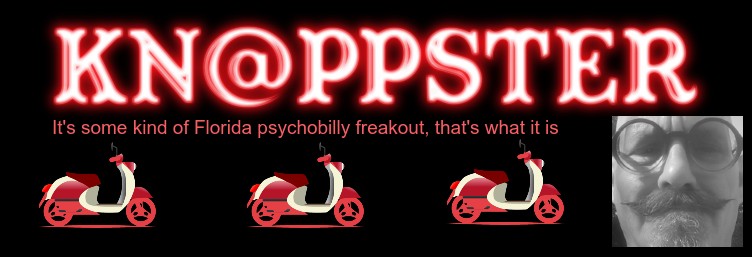-----
Sean Gabb: "If Kevin Carson can have an outreach to the left, why can't some of us have an outreach to the right?"
My reply (with some typos corrected):
Libertarianism and leftism are coterminous. That is, they are the same thing with the same originating point. Libertarianism is the extreme leftmost point on the political spectrum. Therefore, to the extent that someone is a libertarian he is also a leftist and vice versa and all libertarian outreach to non-libertarians is outreach "to the right."
The question is whether such outreach is aimed at pulling those it's aimed at toward libertarianism -- that is, aimed at pulling them to the left -- or whether such outreach is conducted in the false belief that it's possible to remain on the right while simultaneously becoming libertarian.
Note: "Conservatism" is neither "inherently" left nor inherently "right." It is about "conserving" (in the sense of keeping intact in the now, returning to from a not too distant future, or slowing the evolution or abandonment of) some particular value, institution or status quo. It is left/libertarian or right/not-libertarian to the extent, and only to the extent, that that value, institution or status quo is libertarian or non-libertarian. So, for example, an American "conservative" who wants to roll history back a bit to not have mandatory Social Security is libertarian in that preference, while the same "conservative" who wants to roll it back to once again have mandatory government-imposed marriage apartheid is anti-libertarian in that preference.
Additional Thoughts
Political leftism and political libertarianism as I understand them start in the same era (the late 18th century) and even, to an extent, with the same person (Thomas Paine). That's not to say that there weren't instances of political libertarianism and of proto-libertarian thought prior to that time, but it all seemed to come together in revolutionary and post-revolutionary America and France.
The political "left" originated in the French Estates General: The first and second estates (the clergy and the nobility) sat on the right and represented the political class; the third estate ("commoners" -- bourgeoisie, artisans and peasants) sat on the left and represented the productive class.
Marxism was the first major right deviation from libertarianism, aka leftism. Marx's three great right-deviationist errors were:
- Re-defining the left/right conflict from a battle between the productive class on the left and the political class on the right to a battle between "labor" on the left and "capital" on the right;
- Historically re-theorizing the bourgeoisie away from the old left (where they had always been and rightfully belonged and belong) and into his own new "right;" and
- In the name of constructing a "classless" society, calling for his new "left" -- which was actually to the right of the old libertarian left -- to seize, rather than to shatter, the inherently rightist power of the state (to be followed by a far-future "withering away" of the state, yes ... but as he himself said, the state is the executive committee of the ruling class; seizing control of that executive committee seems nearly certain to result in a perpetuation of the class system; see the course the Russian Revolution took for an existence proof).
Of course, it's entirely possible that the bourgeoisie would have found themselves sucked in by the siren song of the political class anyway, but Marx certainly helped that process along by denouncing them as class enemies of a growing socialist -- and, in the hands of Marx and his followers, increasingly statist --movement.
By the end of the 19th century, the political class had theatrically clasped the bourgeoisie to its bosom, simultaneously draining its wealth in general while promoting selected specimens to its ranks. As of the end of that century, libertarianism remained firmly ensconced in the political left.
Over the course of the 20th century, mutant versions of libertarianism ranging from the Chamber of Commerce variety to Ayn Rand's Objectivism and Murray Rothbard's "anarcho-capitalism" came to prominence. The real libertarian movement found itself crushed between the statist left and the theoretically (but unfortunately only theoretically) anti-statist right.
A few luminaries -- the two that come immediately to mind are Samuel Edward Konkin III and Karl Hess -- kept the notion of a "libertarian left" alive in the last half of the 20th century, but it wasn't until the 21st that a new organizational infrastructure including (but by no means limited to) the Alliance of the Libertarian Left, the Molinari Institute and the Center for a Stateless Society emerged, took the Konkin/Hess taper in hand, and used it to light a real bonfire.

No comments:
Post a Comment